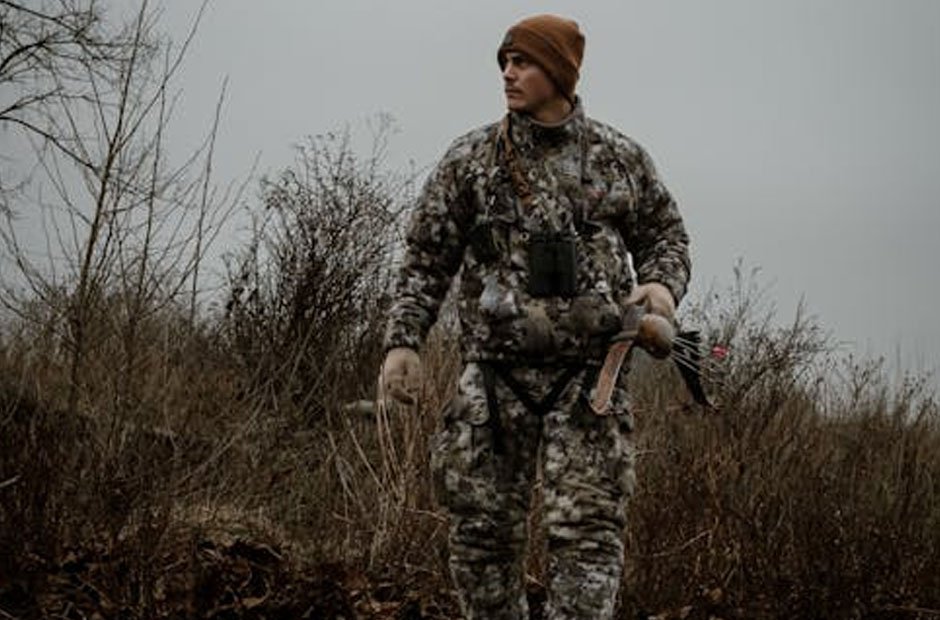Embarking on your first hunting trip is an exhilarating experience. The thrill of being in nature, the anticipation of the hunt, and the satisfaction of honing your skills are all part of what makes hunting so rewarding. However, like any skill, hunting requires proper preparation and practice to succeed. Unfortunately, many beginners make common mistakes that can hinder their experience and success.
Here are the top five mistakes beginner hunters make.
1. Failing to Scout the Area Properly
One of the most critical aspects of a successful hunt is knowing the terrain where you plan to hunt. Many beginners overlook the importance of scouting, thinking they can simply show up on the day of the hunt and hope for the best. However, failing to familiarize yourself with the land beforehand can severely limit your chances of spotting game.
Scouting involves visiting your chosen hunting area ahead of time to study the layout, track animal movements, and identify potential spots for setting up. Learning about water sources, feeding areas, and game trails will give you insight into where animals are likely to be. It’s also essential to take note of wind direction, as this can affect the scent you give off and alert animals to your presence.
Additionally, using trail cameras can be a valuable tool for beginners. These cameras help monitor animal activity in the days or weeks leading up to your hunt, providing vital information on the best places to set up for the day. Taking the time to properly scout your hunting grounds will significantly increase your odds of success and make your hunt more rewarding.
2. Underestimating the Importance of Proper Gear
One of the biggest mistakes beginners make is not investing in the right gear. Hunting is a sport that requires specific equipment for safety, accuracy, and comfort, but many first-time hunters underestimate just how important it is to be properly outfitted. Showing up with the wrong gear or insufficient supplies can quickly turn your dream hunting trip into a nightmare.
Start with the basics: appropriate clothing for the weather, sturdy boots for rough terrain, and a reliable firearm or bow that you’re comfortable using. Dressing in layers and choosing clothing with good insulation will help you stay comfortable in changing temperatures. Your boots should provide ankle support and grip to navigate difficult terrain safely.
3. Ignoring Wind Direction and Scent Control
A crucial element that many beginner hunters overlook is the impact of wind direction on scent. Animals, especially deer, have a highly developed sense of smell and can detect human scent from great distances. If you’re hunting upwind, your scent will be carried straight to the game, causing them to flee before you even have a chance to see them.
To avoid this, always check the wind direction before and during your hunt. Position yourself downwind of the area where you expect to see animals, so your scent won’t alert them to your presence. Even if you’ve scouted the perfect spot and have great gear, ignoring wind direction can ruin your chances of success.
4. Moving Too Much or Making Too Much Noise
Patience is a virtue in hunting, but many beginners struggle with remaining still and quiet. Whether it’s the excitement of spotting game or the discomfort of waiting in one place, the urge to move or fidget can be overwhelming. Unfortunately, unnecessary movement or noise can alert animals and ruin your chances of a successful hunt.
Animals have keen senses of hearing and can detect the slightest rustle or footstep. If you’re constantly shifting your position, talking, or making noise with your gear, animals are likely to flee the area long before they come into your line of sight. It’s essential to practice patience and sit still for extended periods, waiting for the perfect opportunity.
5. Being Unprepared for Post-Hunt Responsibilities
The best hunting trips are those that result in a kill. However, a common mistake beginners make is not being fully prepared for the responsibilities that come after the hunt. Once you’ve successfully harvested an animal, there’s still important work to be done, and being unprepared can lead to unnecessary waste or even legal issues.
Beginners often underestimate the time and effort required for proper field dressing and transporting their game. Field dressing, or gutting the animal, is essential for preserving the meat and preventing spoilage. If you’re unfamiliar with the process, take the time to learn it before heading out on your hunt. Watching tutorials or practicing under the guidance of an experienced hunter can help ensure you’re ready when the time comes.
Additionally, bringing the right tools, such as a sharp knife and gloves, will make the process easier and more efficient. It’s also important to familiarize yourself with local hunting regulations, including tagging, reporting, and transporting your game. Every state has its own rules, and failing to follow them can result in hefty fines or legal trouble.
Conclusion
Hunting is a rewarding sport that requires knowledge, preparation, and patience. By avoiding these common mistakes—failing to scout, using improper gear, ignoring wind direction, moving too much, and being unprepared for post-hunt duties—beginners can increase their chances of success and enjoy a great hunting experience. A little extra preparation and mindfulness go a long way toward making your time in the field both enjoyable and successful.











